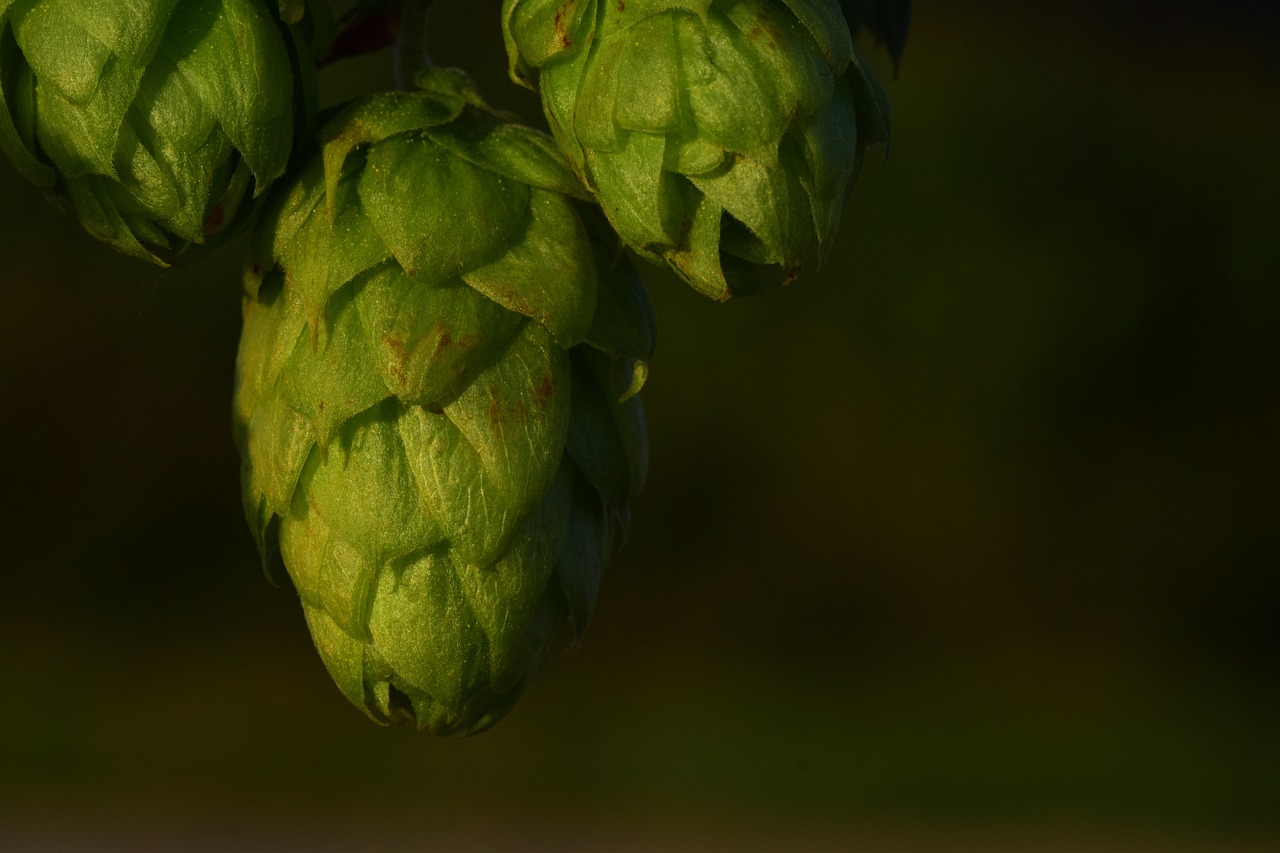
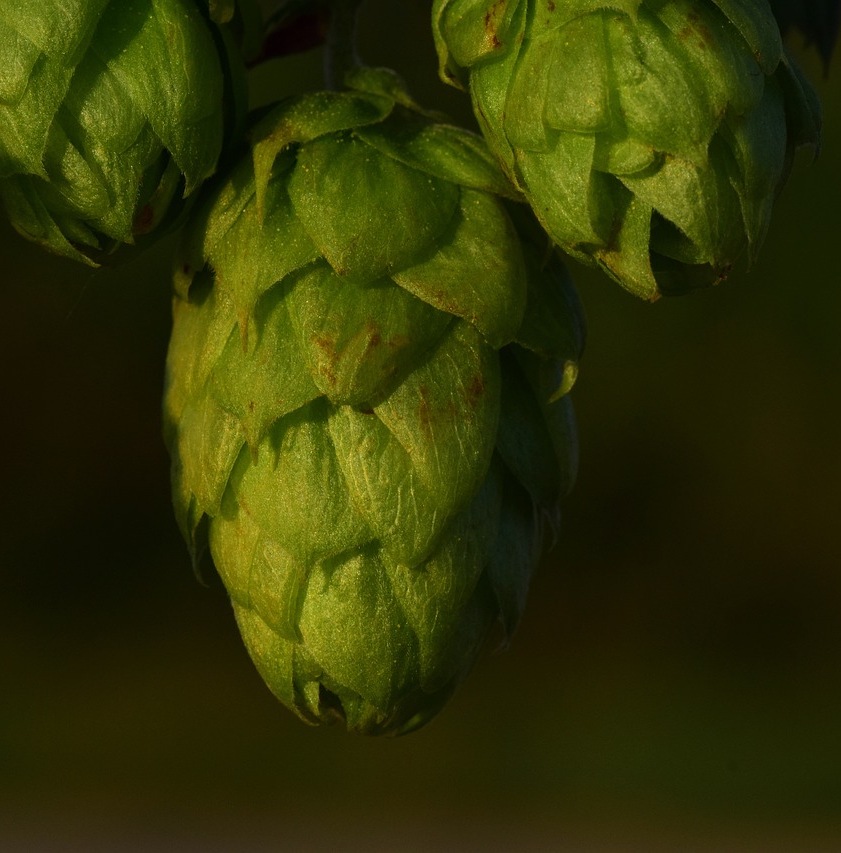
Beyond the Brew: The Medicinal Power of Hops
By Ian Sleat
Sign up for our monthly newsletter!
After a long day’s work, many of us turn to cannabis, cigarettes, or alcohol as a ritualistic remedy to unwind. While Paracelsus, the father of toxicology, once suggested that “a little bit of beer is divine medicine,” it’s crucial to remember that this is not an invitation to down a six-pack of Dos Equis to alleviate chronic pain. Although hops (Humulus lupulus L.) are an essential element of beer’s flavor profile, research suggests they are also a versatile medicinal powerhouse.
The primary component of hops, whether used in brewing or for its health benefits, is the cone. These cones house glands filled with bitter oils and aromatic compounds responsible for their medicinal properties. Typically, hop plants are cultivated as vines that spiral around a support structure to prevent the cones from drooping or breaking. The cones and flowers are integral in protecting and preparing the aromatic resins that impart the characteristic bitterness and aroma you might recognize in a dark IPA.
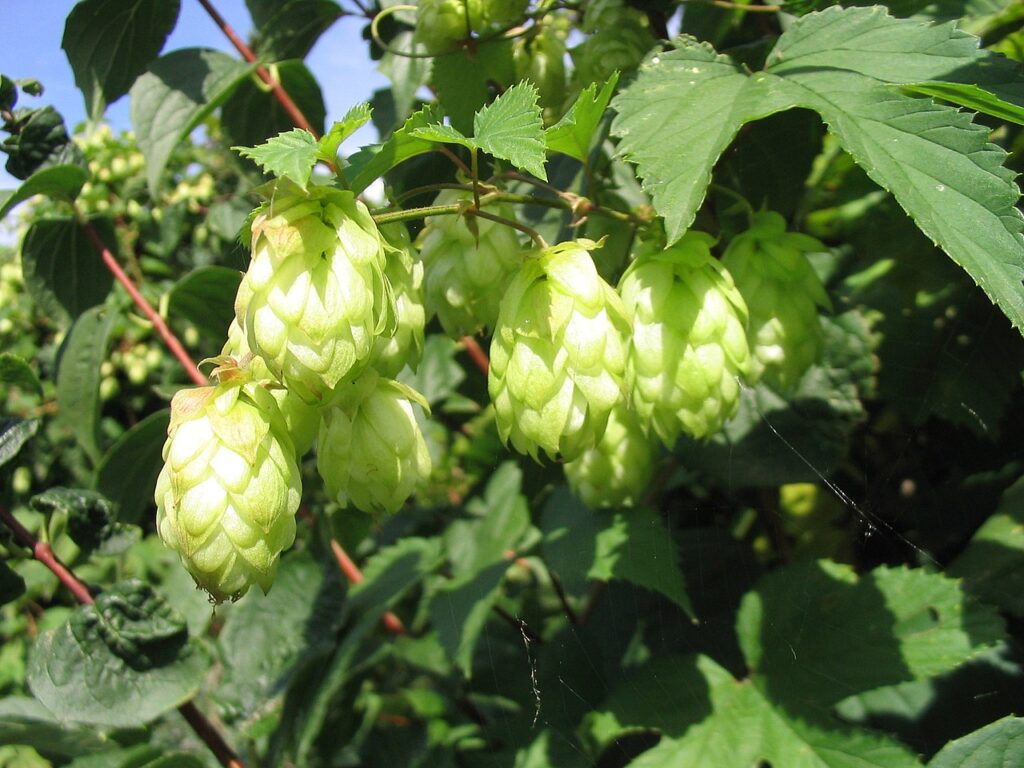
Beer was certainly one of the earliest alcoholic beverages used by humans and hops has a long and storied history that is still uncertain, dating back thousands of years to prehistoric times. Although evidence suggests that hopped beer was used in Finland in prehistoric times, and 8,000 years ago in the Near East, the first recorded use of the herbaceous perennial in brewing is often attributed to the 9th century in the Hallertau region of modern-day Germany. However, it wasn’t until the 12th century that hops began to gain widespread popularity in brewing, thanks to the efforts of German Benedictine monks. These monks discovered that adding hops to their beer not only improved the flavor and aroma but also acted as a natural preservative, extending the beverage’s shelf life. This discovery revolutionized brewing practices, eventually spreading across Europe and laying the foundation for the modern beer industry.
However, before hops were used in brewing, the plant was known for its medicinal properties and nutritional offerings. By the 16th century, hops had become a staple in herbal medicine across Europe. In England, for example, they were used as a treatment for insomnia and digestive disorders. Like all plants that become valuable resources, they were spread through colonization and migration. The plant’s introduction to the New World came with European settlers, who brought hops to North America in the 17th century.
Male hop cones are primarily reserved for planting new seeds and breeding varieties. The female cones, called strobili, contain a wealth of chemical compounds in their resins and oils, which not only contribute to beer’s flavor but also offer various health benefits. These benefits include antioxidant and antimicrobial properties, digestive aids, and even progestogenic effects. Hops are perhaps most commonly known for their mild sedative and anti-anxiety properties. They are frequently found in over-the-counter herbal tinctures, often combined with chamomile, passionflower, or valerian.
Believed to have been used medicinally since ancient times, the hops plant likely originated in China. Despite the limited knowledge of herbal care in those times, hops quickly gained a reputation as a life-prolonging plant due to their practical and medicinal versatility.
The future of hops in medicine is promising and ongoing research suggests a wide range of potential applications beyond traditional use in brewing. As scientists continue to explore the bioactive compounds found in hops, particularly the bitter acids and polyphenols, there’s growing interest in their potential to treat various health conditions.
For example, hops are being investigated for their anti-inflammatory properties, which could be beneficial in managing chronic conditions such as arthritis and inflammatory bowel disease. Additionally, the sedative effects of hops previously mentioned are now being studied for potential use in natural sleep aids and treatments for anxiety disorders. There’s also emerging research on the role of hops in hormone regulation, particularly concerning menopause and other estrogen-related conditions. As more is understood about the bioavailability and efficacy of these compounds, we can expect the development of new hop-based supplements and pharmaceuticals tailored to address specific health issues, making hops a significant player in the future landscape of herbal medicine.
As clinical studies on humans increase, the industry is expected to innovate with forms of hops that offer increased bioavailability and diverse administration methods. With ongoing research, we can look forward to a more informed understanding of this remarkable plant’s efficacy.
Herbal Hops Extract
https://www.medicinenet.com/herbal_hops_extract/article.htm
Hops: Purported Benefits, Side Effects & More
https://www.mskcc.org/cancer-care/integrative-medicine/herbs/hops
NIH National Library of Medicine: Hops
https://www.ncbi.nlm.nih.gov/books/NBK548872
Antioxidants in Hops: Bioavailability, Health Effects and Perspectives for New Products
https://www.ncbi.nlm.nih.gov/pmc/articles/PMC8868281
Medicinal Plants Used for Anxiety, Depression, or Stress Treatment: An Update.
https://www.ncbi.nlm.nih.gov/pmc/articles/PMC9500625
Ian Sleat is a food and culture writer attending NYU Steinhardt School of Culture, Education, and Human Development (Instagram: @sleatian)
Plantings
Issue 39 – September 2024

The Art of the Brew: Exploring Hops and Other Plant Ingredients That Define Beer
By Gayil Nalls
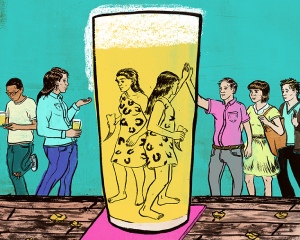
Beer Domesticated Man
By Gloria Dawson
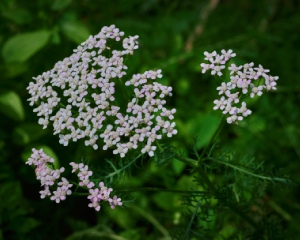
Viriditas: Musings on Magical Plants
By Margaux Crump

Plants, Psychodiversity, and the Paranormal
By Jake Eshelman

Inside the Floral Mind: A Conversation with Kreetta Järvenpää
By Gayil Nalls
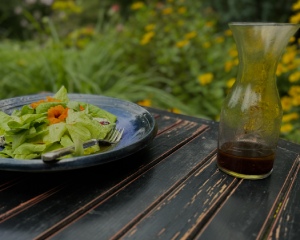
Eat More Plants Recipes:
Raspberry Balsamic Dressing
By Diane Reiss

As Ireland transitions from the rich, smoky scent of peat-burning to a more sustainable future, its olfactory heritage is evolving. What will become the next iconic aromatic symbol of Ireland?
Click to watch the documentary trailer.

